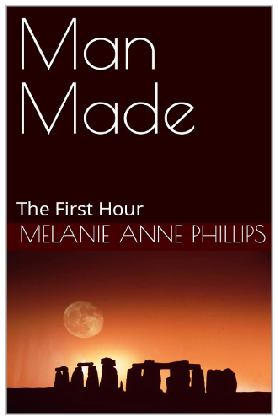|
For Story Structure |
|
For Story Development |
|
|

Read the Science Fiction Thriller
From the founder of Storymind
Man Made follows a mysterious force as it sweeps around the globe erasing anything man made -
Governments stagger under the panic, religions are at a loss for an explanation, scientists strive for any means to stop or divert the phenomenon, and the world’s population from families to individuals struggle to prepare for The Event, which will drive humanity back beyond the stone age.
The Event is coming.
Are you prepared?
Copyright Melanie Anne Phillips
|
|
Free Writing Resources
Audience Reach
In Dramatica narrative theory, there are some story points that deal individually with the structure and others that pertain to the collective impact of a number of story points. Audience Reach is one of these combined dramatics. It is also called an Audience Story Point because it is concerned with the kind of reach the story has into the audience.
Specifically, it describes whether your readers/audience will empathize or sympathize with your Main Character. Empathy is when your readers/audience identify with your Main Character. Sympathy is when they care about your main character but feel more as if they are standing right behind the character, rather than in its shoes.
When audience members empathize, they suspend their disbelief and emotionally occupy the Main Character's position in the story. When audience members sympathize, it seems to them as if the emotional maelstrom of the story revolves around the Main Character, making him or her the Central character of the story.
Audience Reach is determined by the effects of two story points: Story Limit and Main Character Mental Sex. Limit describes the story dynamics that force the story to a conclusion. Mental Sex describes whether your Main Character thinks like a man or a woman.
Story Limit has two variations -
Option Lock stories are similar to Disney's "Beauty and the Beast" in which a transformed prince must make someone love him before the last petal falls from an enchanted rose or he will remain a beast forever. When the last petal falls, the conclusion is reached.
Main Character Mental Sex also has two variations -
Examples can be seen in the motion picture "Aliens" in which the Main Character (Ripley) was actually written for a man and changed only the character's dialog when the role was cast with Sigourney Weaver. Alternatively, in the movie "The Hunt for Red October", Jack Ryan is a female mental sex Main Character as he solves problems intuitively and emotionally, rather than by observation and logic.
As one might expect, male and female readers/audience members empathize or sympathize with a Main Character for different reasons.
For men, they will empathize with Male Mental Sex Main Characters and sympathize with Female Mental Sex Main Characters, regardless of which limit is invoked -
Why the difference? Well, the reasons are in the physiology of the brain, and too deep to go into here. If you are really interested, you'll find a complete description of what causes the mental differences between mean and women later in this program in a lesson devoted specifically to mental sex.
Still, for a quick visual, imagine a plain old clock face. Imagine that men's minds sit at noon, and women at 9 o'clock. Thinking clockwise, men see women as being three quarters of an hour away. Women see men as only being one quarter of an hour away. This serves to illustrate that the sexes really aren't opposite, but are more accurately sideways to each other.
When men and women converse, they are often speaking apples and oranges and are not really in conflict or disagreement. They simply don't have a means of seeing things the way the other sex does. So, it is not surprising that men's empathies might be drawn to those who think like them (also at noon on the clock) while women (seeing men as just one quarter hour away) would be more affected by the situation in which the main character finds itself. For women, an option lock is more like the way they think -
Okay, lets put that behind and see what we can do with this information.
If you want to create a story in which both men and women empathize with the Main Character, then you will want to limit your story with an option lock but employ a Male Mental Sex Main Character. On the other hand, if you want to explore a despicable Main Character, you may not want to disturb your readers/audience by making them empathize with such a cad. In such a case, you can ensure your readers/audience will only sympathize by writing a Female Mental Sex Main Character in a time-
Naturally, the other two combinations can also exist -
You can predict whether a book or movie will attract more men or women, just by seeing who empathizes. Hollywood tends to favor Male Mental Sex / Option Lock stories most often. This has the entire audience empathizing, and therefore (since far more mixed mental sex couples go to movies that single individuals or same mental sex couples) it ensures the largest percentage of the audience is personally involved in the movie, thereby increasing its box office (all artistic merit aside).